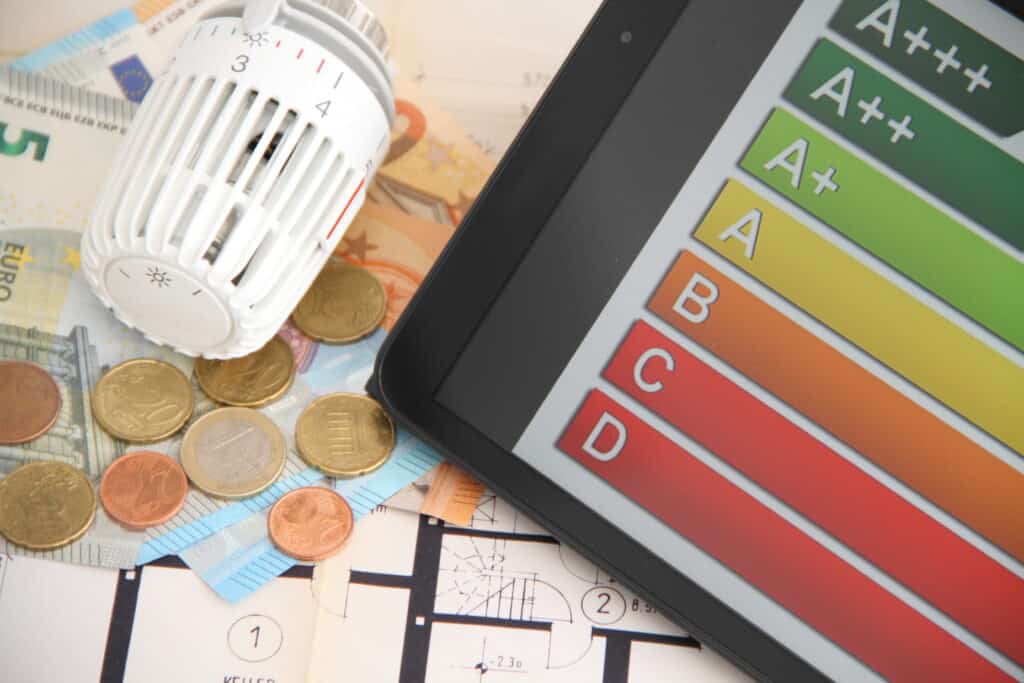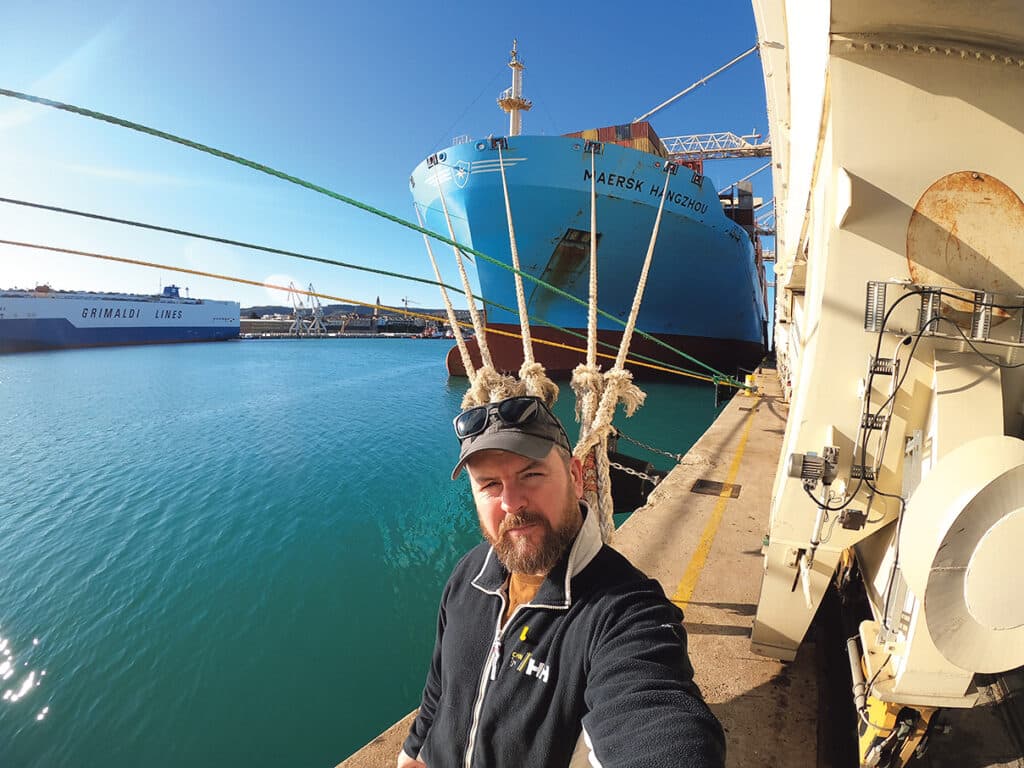Xavier Dubuisson is a renewable energy engineer and consultant and founding member and CEO of RetroKit Ltd, a software company dedicated to unlocking the housing energy renovation challenge with digitalisation. He shares some practical advice with homeowners looking to conserve energy and reduce costs over the winter.

Firstly, if you have a night time electricity rate it makes a lot of sense to time your appliances to come on at night; most new appliances have a timer function. This can save up to 25 per cent on electricity usage.
Here are a few tips for the kitchen:
• Your fridge should be between three to five degrees and your freezer between minus-15 to minus-18 degrees.
• Defrost your freezer every six months to make sure it’s running as efficiently as possible.
• Only boil the amount of water you need in a kettle and put lids on your cooking pots.
• Try and cook a few meals together – for example if you are turning on the oven, try cooking a few meals at the same time, roast a chicken and cook a lasagne at the same time.
• Don’t open your cooker door more than you need to.
What are the main culprits in the home for high energy use and what can be done to reduce this?
The appliance that uses the most electricity is the tumble dryer so hang your washing out to dry whenever you can.
An oven is also a big electricity user, so try and switch to a microwave oven where you can.
With energy prices rising, what does this mean for sustainable energy solutions such as an air to water heat pump that runs off electricity?
As heat pumps use electricity to extract heat from the air (like a fridge in reverse) you will see an increase in your electricity bill. But if you compare with oil heating, heat pumps are still 40-60 per cent cheaper to heat your home compared to oil heating based on July 22 costs for oil and electricity published by SEAI.
What is the average running cost of a heat pump per annum?
The costs for an average house will vary between €1000 and €1,300 a year depending on the efficiency of your heat pump and the size of your house.
It’s worth seeing if you can spread the costs throughout the year with an equaliser bill payment as costs will be higher during the winter.
The biggest problem for most people is the investment in the heat pump itself. Here, grants from SEAI (seai.ie), availing of a green mortgage from your bank or a low-cost loan from your credit union, will help.
What is the most cost-effective way of using a heat pump to heat your home?
Your house needs to be insulated to get the best value out of your heat pump – and this is also requirement for grants. You will need a technical assessment completed before you can get a grant to make sure of this.
Keeping a steady heat all day is better than turning on and off the heating – heating controls and thermostats can help with this. Heat pumps will work best when you operate your radiators at a relatively low temperature. This keeps an even temperature in the home.
If you have nighttime electricity, it makes sense to run the heat pump overnight at a cheaper rate of electricity.
I live in an old cottage, can you advise on the best and most affordable strategy to improve the energy efficiency of my home, from insulation to windows and doors etc?
The first thing to do is to insulate the house – this can be done first of all in the attic and grants up to 80 per cent are available for this.
Next seal any air leakages by servicing your windows and doors and blocking any draughts. If you can afford to upgrade your windows and doors to double or triple glazing, this will make a big difference. However, if your double glazing is in good condition and doesn’t need immediate replacing, this might not be a priority from a return on investment point of view.
For the walls – insulting from the outside may be the best option but can be expensive.
For old stone buildings, it’s important that the walls can breathe out moisture so it’s good to consider using natural materials for insulation.
How can I make my home more airtight, without compromising on ventilation?
An easy first step is to get your windows and doors serviced – local contractors can do this. This include checking seals, hinges and handles, and replace if necessary. This will make a big difference. Attic trap doors, downlighters, drain pipes, letter box, etc. are common sources of air leakage and should be made airtight.
Thermal imaging is a useful thing to do – a contractor comes to your house with a special camera which shows up any leaks in the building – so that you can fix them.
Now that the house is more airtight it’s important to provide for good ventilation to maintain good air quality and to avoid damp and mould problems. This step includes removing moisture from bathrooms, kitchens with extraction fans. Controlled air supply vents will refresh the indoor air while reducing heat losses.
Chimneys are a very important source of air leakage and those not in use should be blocked. If you are using a traditional fireplace, you should move to a stove.
If you are burning solid fuel, it’s important that combustion appliances have a dedicated air supply and that high quality dry fuels are used. Carbon monoxide is a risk if ventilation is not adequate and a carbon monoxide alarm should be installed.
Is installing solar panels on a small house really worth it…will I see a return on my money?
With rising electricity prices, installing solar panels does makes sense – especially now that we are able to get paid for the electricity that we don’t use. There is a €2,400 maximum grant available.
You will need to consider a few questions first – Is your roof facing the right direction, is it free from shade, do you have a smart meter, etc?
It’s always best to use the electricity that you produce yourself so it’s worth planning ahead e.g. putting washing or a dishwasher on when the sun is shining. Any excess electricity can be used to heat hot water or charge an electric car at home – and then anything that is not used can now be sold back to the national grid – so if you are away for a week or two during the summer, you can get money back from the solar power you haven’t used.
Aside from SEAI, what other resources would you advise for anyone interested in energy saving?
CODEMA – Dublin’s energy Agency has an excellent website with tips on how to save energy: www.codema.ie or go to www.seai.ie/publications/SEAI-ReduceYourUse-Booklet.pdf.
Connect with your local Sustainable Energy Communities group.
If you are on social welfare benefits including fuel allowance go to seai.ie to see if you are eligible for grants.


